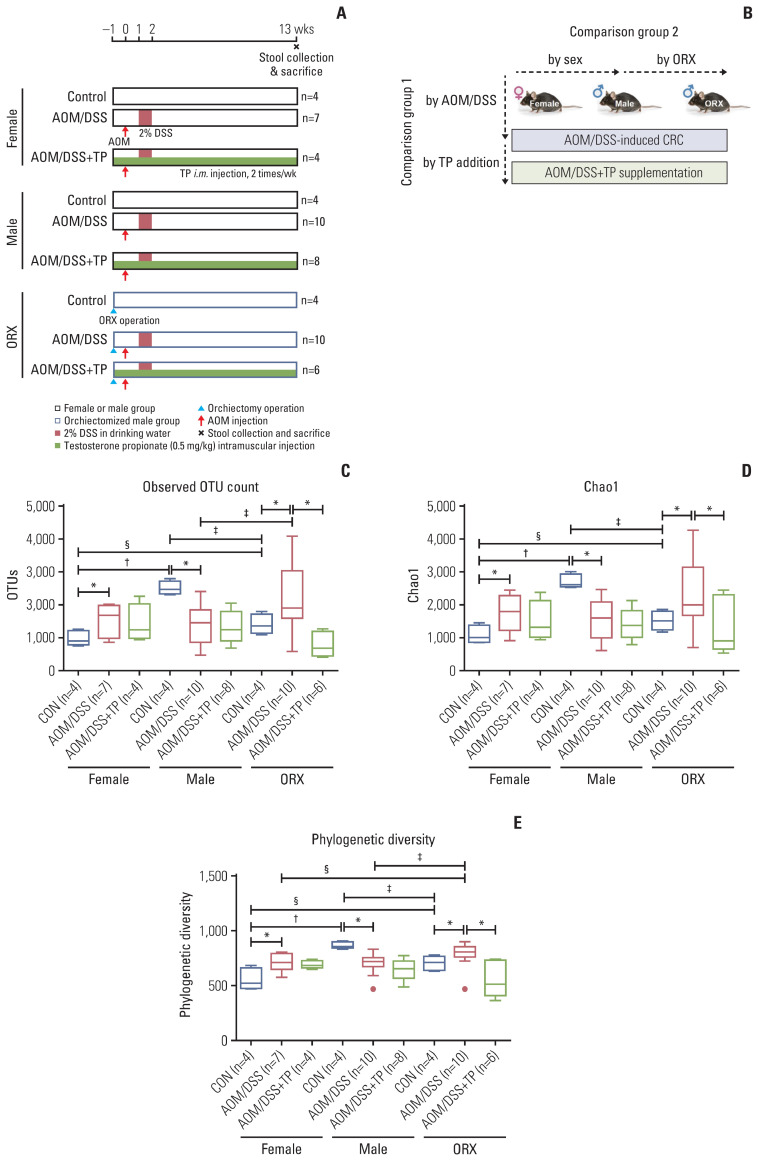Fig. 1.
Study design to evaluate the effect of testosterone on gut microbiota composition during colon tumorigenesis. (A) Study design. Female, male, and orchiectomized mice were treated with AOM/DSS to induce colitis-associated CRC. One week after orchiectomy, all mice were enrolled in the AOM/DSS protocol. The mice were injected with AOM (10 mg/kg bodyweight) on day 0. One week after AOM injection, DSS (2% w/v) was provided in the drinking water for 1 week, followed by normal drinking water. TP was administered by intramuscular (i.m) injection twice a week from the day of surgery to the end of the experiment. Fecal collection and mouse sacrifice were performed at week 13 (22-weeks age) after AOM injection. (B) Data analysis scheme. In comparision group 1, the effects of AOM/DSS-induced CRC and TP addition in AOM/DSS group on the gut microbial composition was examined. In comparision group 2, the effects of male sex hormone on the gut microbial composition was examined. (C–E) Alpha diversity of gut microbiota. Next-generation sequencing was performed with 16S rRNA gene from mouse stool DNA. Observed OTU count (C), Chao1 as a species richness estimator (D), Phylogenetic Diversity as a phylogenetic richness estimator (E) of the intetinal microbiota in female, male, and ORX mice. Data are expressed as the mean±SEM. Whiskers show the minimum and maximum values. Mann-Whitney U test for comparison difference between independent two groups was performed. AOM, azoxymethane; CON, control; CRC, colorectal cancer; DSS, dextran sulfate sodium salt; ORX, orchiectomized; OTU, operational taxonomic unit; SEM, standard error of the mean; TP, testosterone propionate. *p < 0.05 for “CON vs. AOM/DSS” or “AOM/DSS vs. AOM/DSS+TP” in female, male, and ORX groups, †p < 0.05 for “Female vs. Male”, ‡p < 0.05 for “Male vs. ORX”, §p < 0.05 for “Female vs. ORX” in CON, AOM/DSS, and AOM/DSS+TP subgroups.

